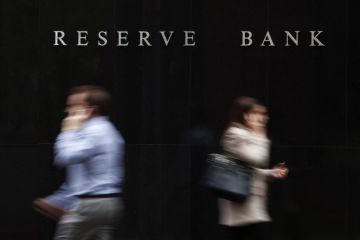Optimism slumps to record low as Australians see a grim 2018

The number of Australians optimistic about the year ahead has dropped to a never-before-seen low as mortgage holders eye a combination of record-high household debt and the possibility of interest rate hikes in 2018.
According to a Roy Morgan survey taken in mid-November, 31 per cent of people think 2018 will be “better” than 2017 – the lowest figure recorded since the survey began in 1980.
Along with a slide in positivity, the survey showed a spike in active negativity, with 30 per cent expecting next year to be “worse” than 2017 and 39 per cent saying it will be “the same”.
Younger Australians are more positive than older generations, with almost half (46%) of 18-24-year-olds expecting next year to be better, while just 20 per cent of over 65s feel that way.
In fact, a noticeable drop in optimism can be seen as Australians age.

“[Older Australians] have the debt,” AMP Capital chief economist and head of investment strategy Shane Oliver told Domain.
“There’s a growing problem in Australia where a lot of people might own their home by the time they’re 65 but they still have a lot more debt than previous generations.
“If you were going to worry about a property price collapse, you wouldn’t be as worried about it if you were a younger Australian – they might actually see an opportunity. If you’re an older Australian with a lot of debt it might be more of a worry for you.”
Households are sitting on record high debt, above 190 per cent of income, which is why talk of interest rate hikes have been hitting confidence.
Reserve Bank governor Philip Lowe reiterated last week he sees the next move from the central bank as being upwards, and while most economists expect those hikes in late 2018 or even 2019, ANZ is hanging onto its call that two rate hikes await next year.
Meanwhile, confidence in the institutions to which Australians are so deeply indebted has scarcely been lower, with scandals and the threat of a royal commission a part of the landscape.
“The bank questions seem to keep coming – it seems to have a life of its own,” Dr Oliver said.
“This idea of the royal commission or commission of inquiry… putting aside the should we or shouldn’t we… that constant talk that there’s some sort of problem with the banks is probably affecting people as well.”

Elsewhere in the survey, city-dwellers are shown to be more pessimistic than those in the country, while Victoria is the most upbeat state.
“Analysing these results closely shows that slightly more men (33 per cent) than women (29 per cent) expect 2018 to be ‘better’ than 2017 while Victoria (33 per cent), Western Australia (32 per cent) and Queensland (31 per cent) are slightly more optimistic about the future than NSW, South Australia and Tasmania – only 28 per cent of respondents in these three states say 2018 will be ‘better’ than 2017,” Roy Morgan chief executive officer Michele Levine said.
And the general sense of “malaise” could be here to stay, according to Shane Oliver.
“It seems the old days of ‘she’ll be right, mate died off with the Holden Ute,” he said.
We recommend
We thought you might like
States
Capital Cities
Capital Cities - Rentals
Popular Areas
Allhomes
More






